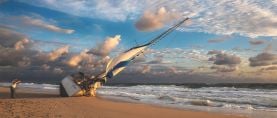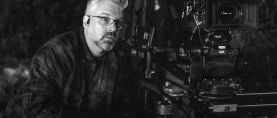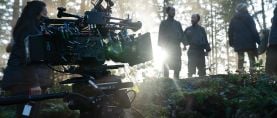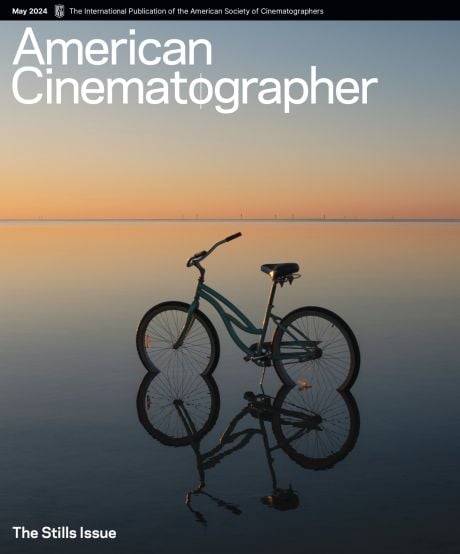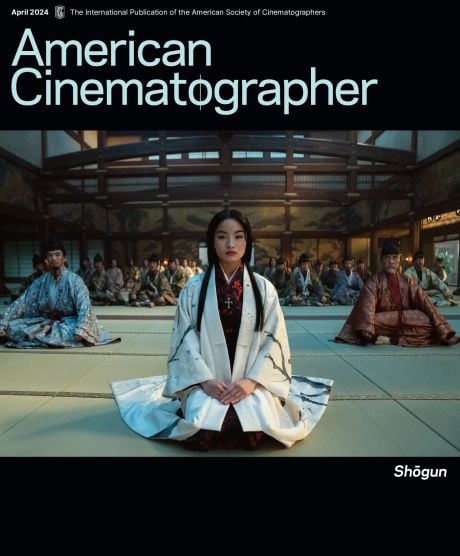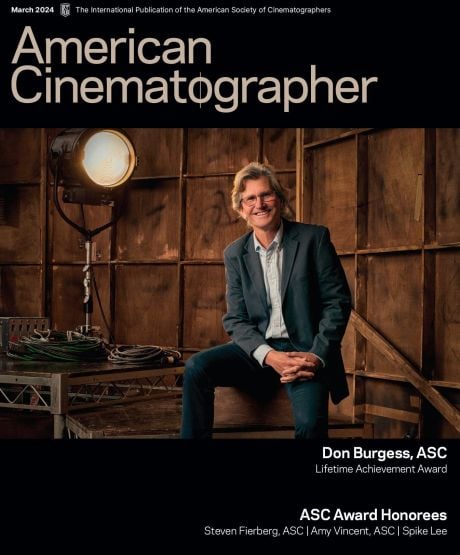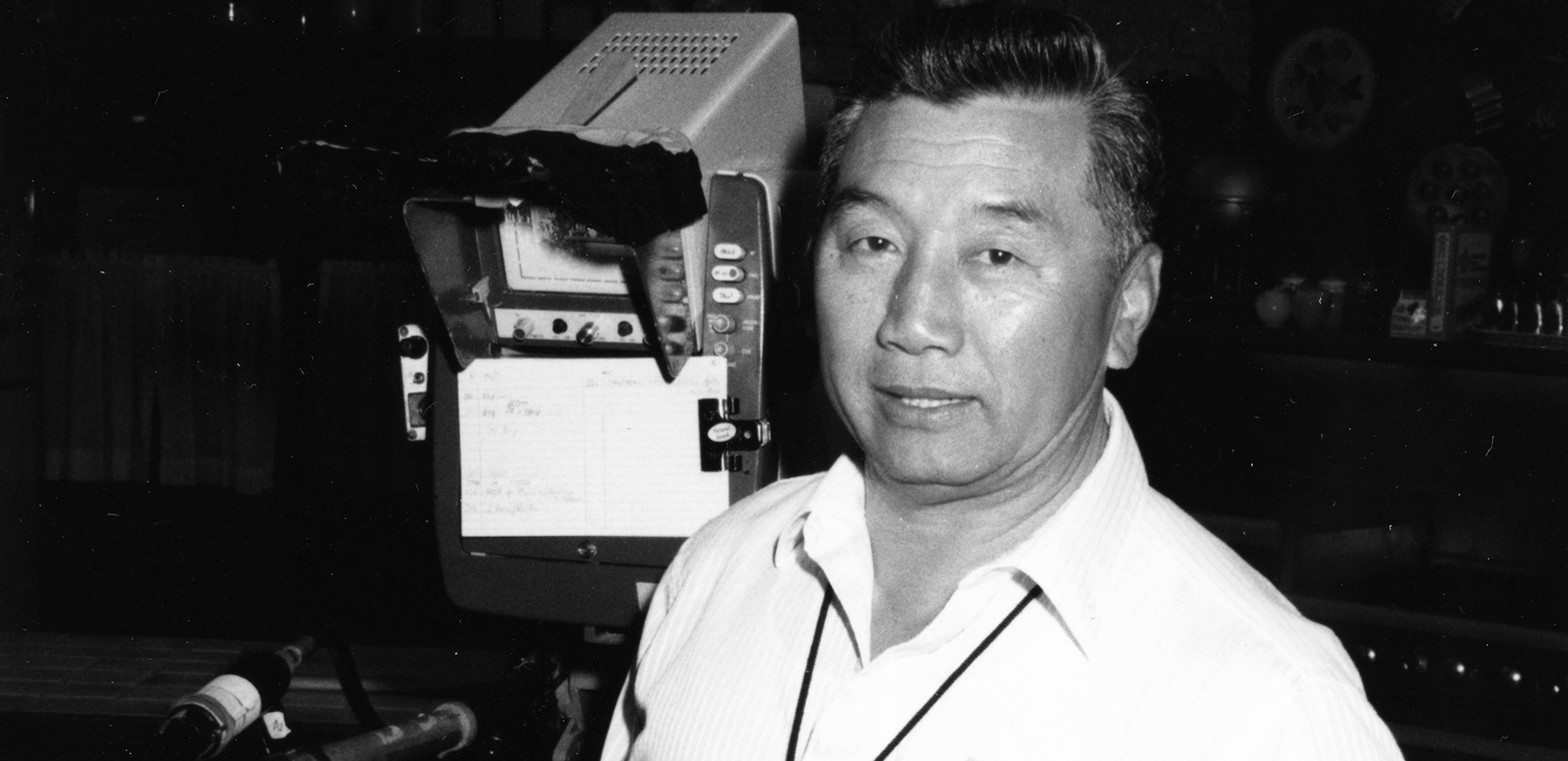
In Memoriam: Robert F. Liu, ASC (1926-2021)
A two-time Emmy nominee, the Chinese immigrant excelled in a difficult profession, due to diligence and inspiration from mentors, including James Wong Howe, ASC and Robert Wise.
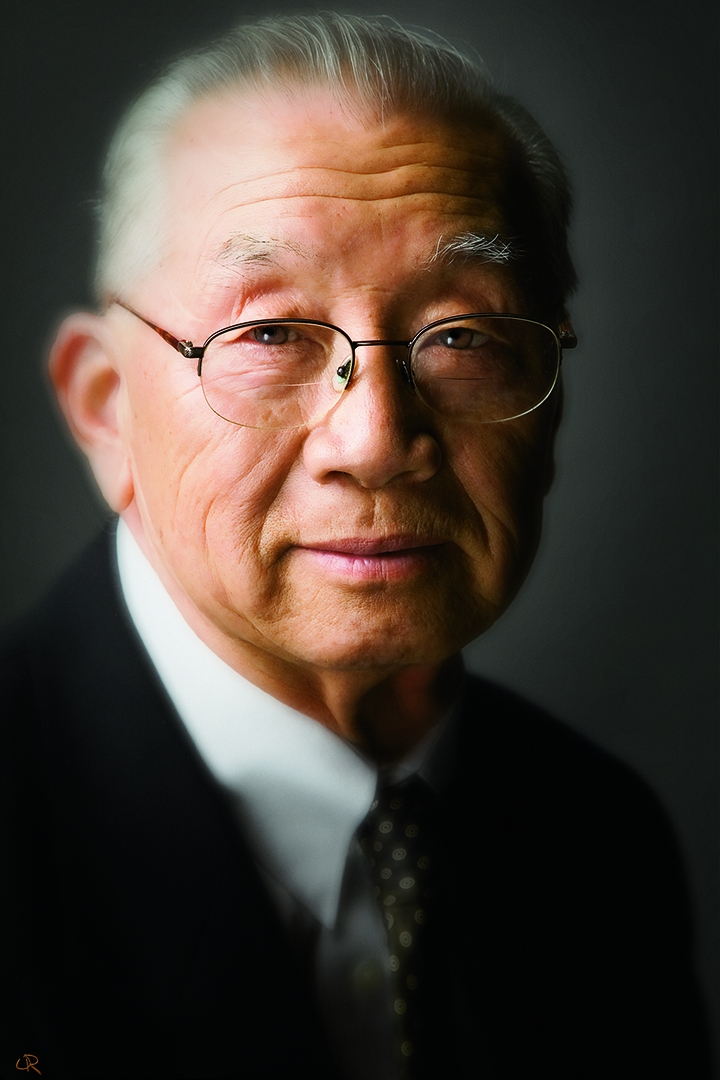
Director of photography Robert F. Liu, ASC forged a cross-cultural career at a time when such international experiences were rare.
He died at the age of 94 on January 11, 2021.
When Liu was a young man, his talent was recognized by Chinese film pioneer Chuang Kuo Chuen, and he found Stateside mentors in director Robert Wise and cinematographer James Wong Howe, ASC. Liu went on to earn Emmy nominations for his work on the hit series Lou Grant and Family Ties.
Liu was born in Shanghai on May 1, 1926. He had six brothers and one sister. His father, who had been educated in the United States on a YMCA scholarship, worked as senior clerk at Anderson Clayton, an American firm with offices in Shanghai. Young Bobby and one of his brothers shared an early interest in chemistry, and together they turned the family home into a veritable laboratory, making everything from batteries and soap to enlarging paper.
As a child, Liu enjoyed the exploits of Tom Mix and other legends of the silent cinema. By the time he reached high school, he had begun experimenting with his brother’s 8mm Kodak camera. “I was fascinated with moving pictures, but I never thought I would end up in the business,” he told AC contributor David Heuring in 2009 when he was honored with the ASC Career Achievement in Television Award. “I was very fortunate.”
Inspired by Walter Pidgeon’s portrayal of a U.S. ambassador to Mexico in Holiday in Mexico (1946), Liu set his sights on a career in diplomacy, and he earned a bachelor’s degree in political science. Upon graduating, however, he realized that such a career did not align with his principles. “The saying was, ‘An ambassador is an honest man sent abroad to tell lies,’” he noted. “When I heard that, I decided it wasn’t for me.”
In 1949, Liu made his way to Hong Kong and took his first steps toward a career in filmmaking. A friend brought him to Great Wall Studio, where he found work as a boom operator in the sound department. Great Wall was also home to Chuang Kuo Chuen, who financed, wrote, directed and shot features, and in 1951, when Chuang was offered a chance to be the director of photography on a film in Taiwan, Liu worked as his assistant. The two remained close, and in 1957, Liu married Chuang’s daughter, Ivy.
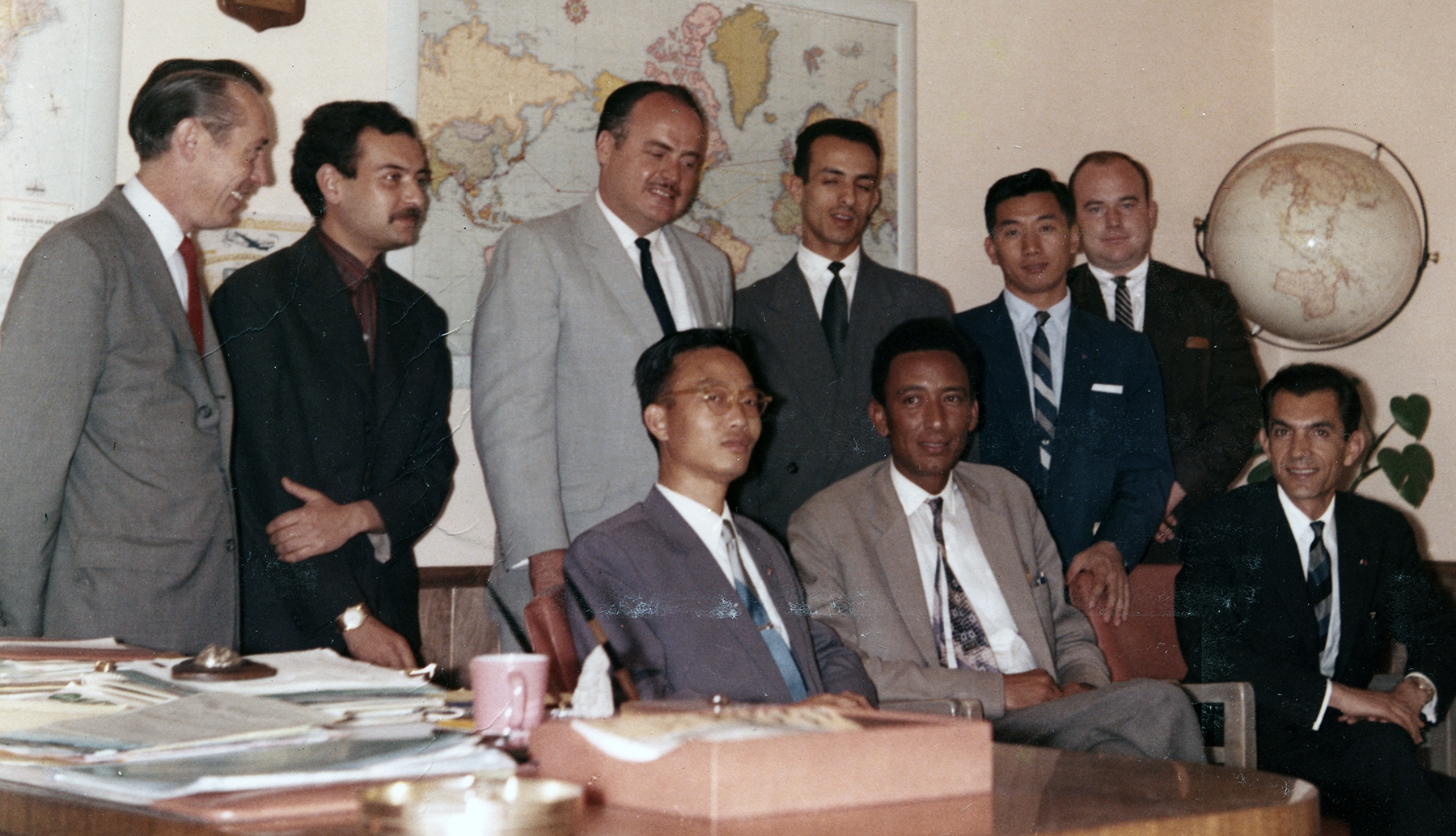
In 1959, sponsored by the National Academy of Arts and Crafts in Taiwan, Liu made his first trip to the United States, with the understanding that he would teach others upon his return to Taiwan. With the U.S. government paying his tuition, he was sent to the University of Southern California, where one of his professors, Herbert Farmer, encouraged him to pursue a graduate degree. Liu subsequently earned a master’s in film from USC. During his studies, Liu met Howe and Wise, and a few years later, when Wise went to Taiwan to make The Sand Pebbles (1966), he brought Liu aboard the picture as first assistant director.
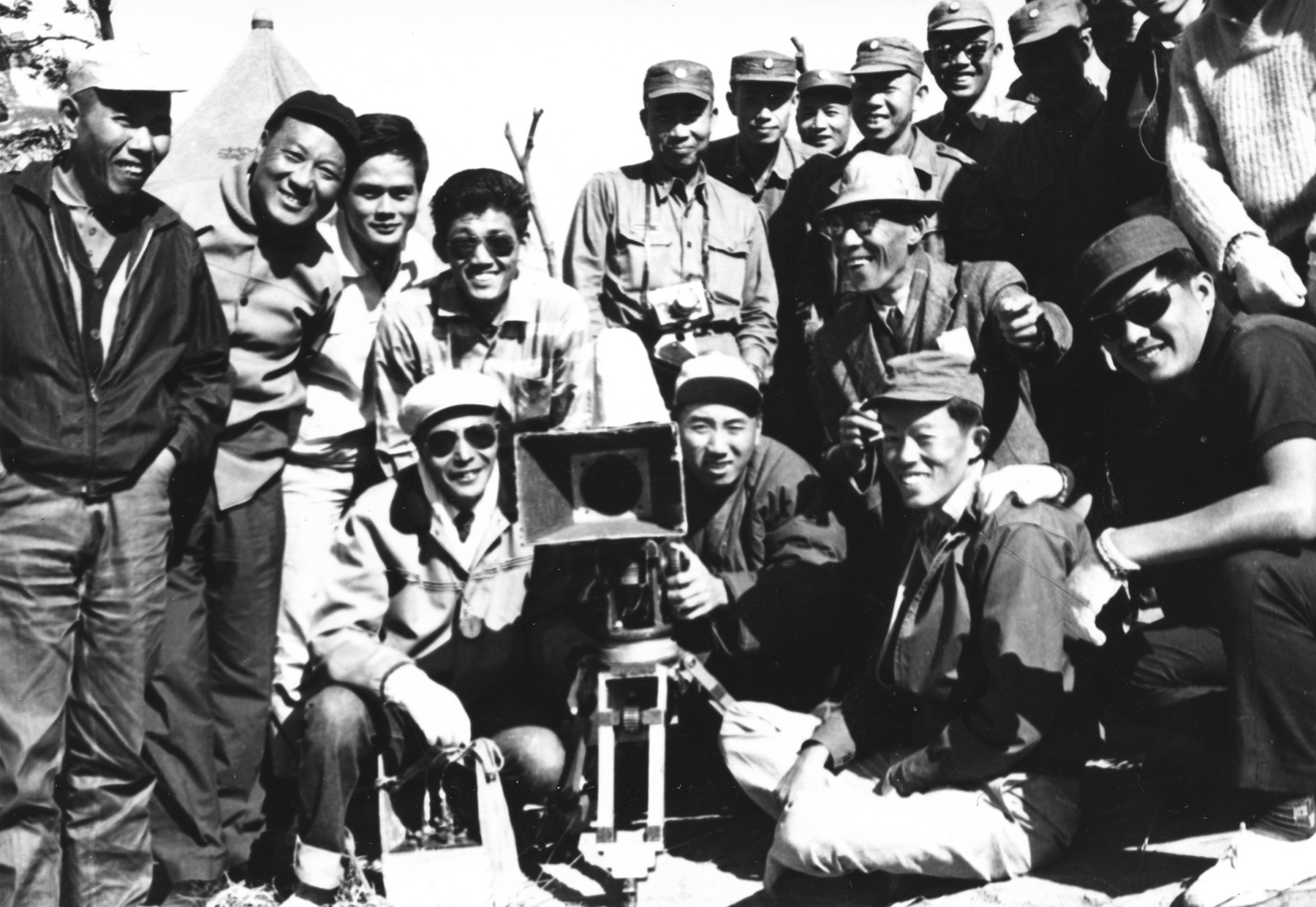
Liu subsequently directed and edited a documentary, Industry: A Free China, for the U.S. Information Office in Taiwan. “When I showed the film to James Wong Howe, he complimented me on the editing, and that meant a lot to me,” Liu recalled. “I didn’t pay a lot of attention at the time, but that film helped me immigrate to the United States.
“When I came to America for the first time, in 1959, I realized what freedom actually is, and I dreamed of immigrating to the United States someday,” he said. “A dream doesn’t cost anything!”
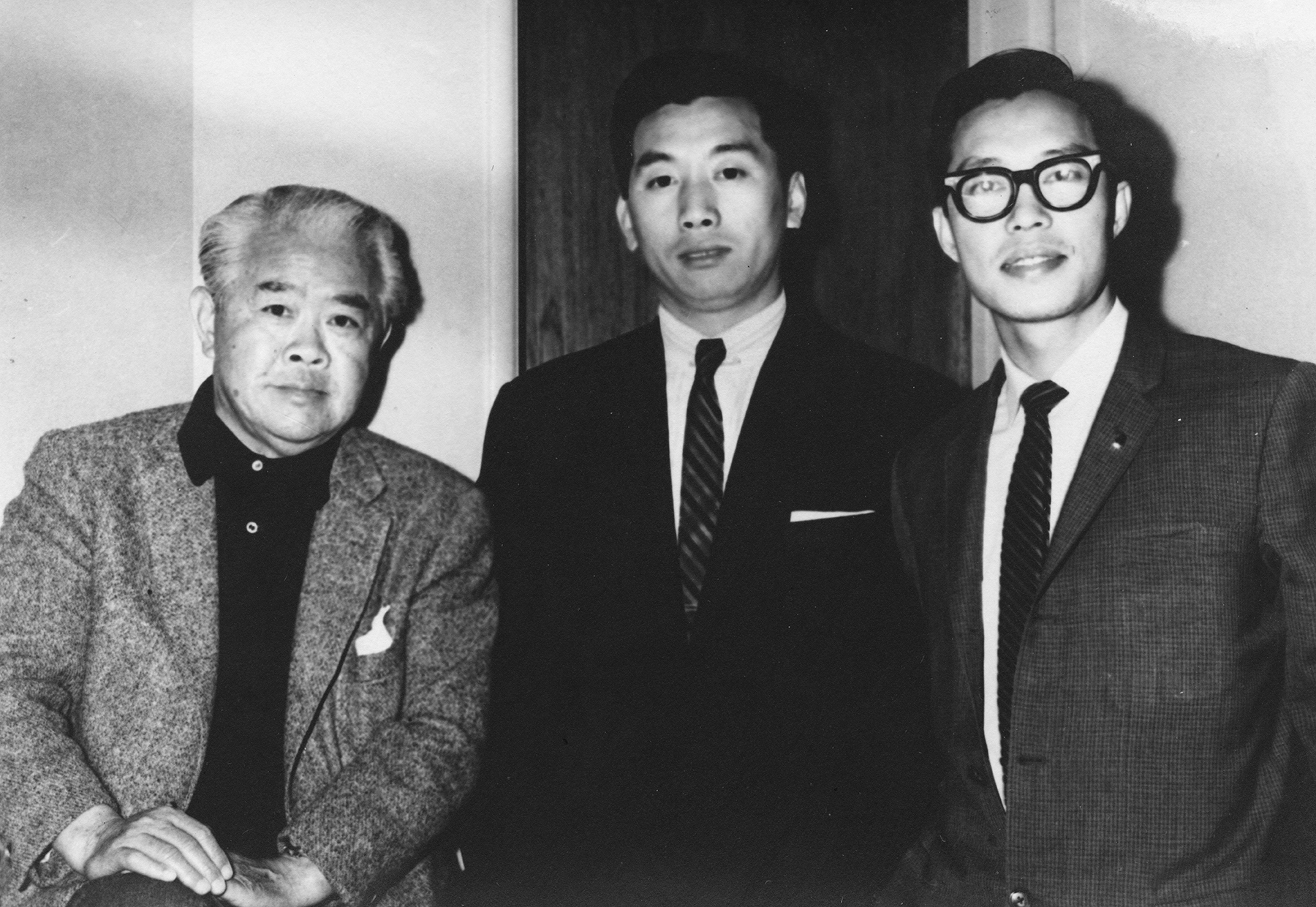
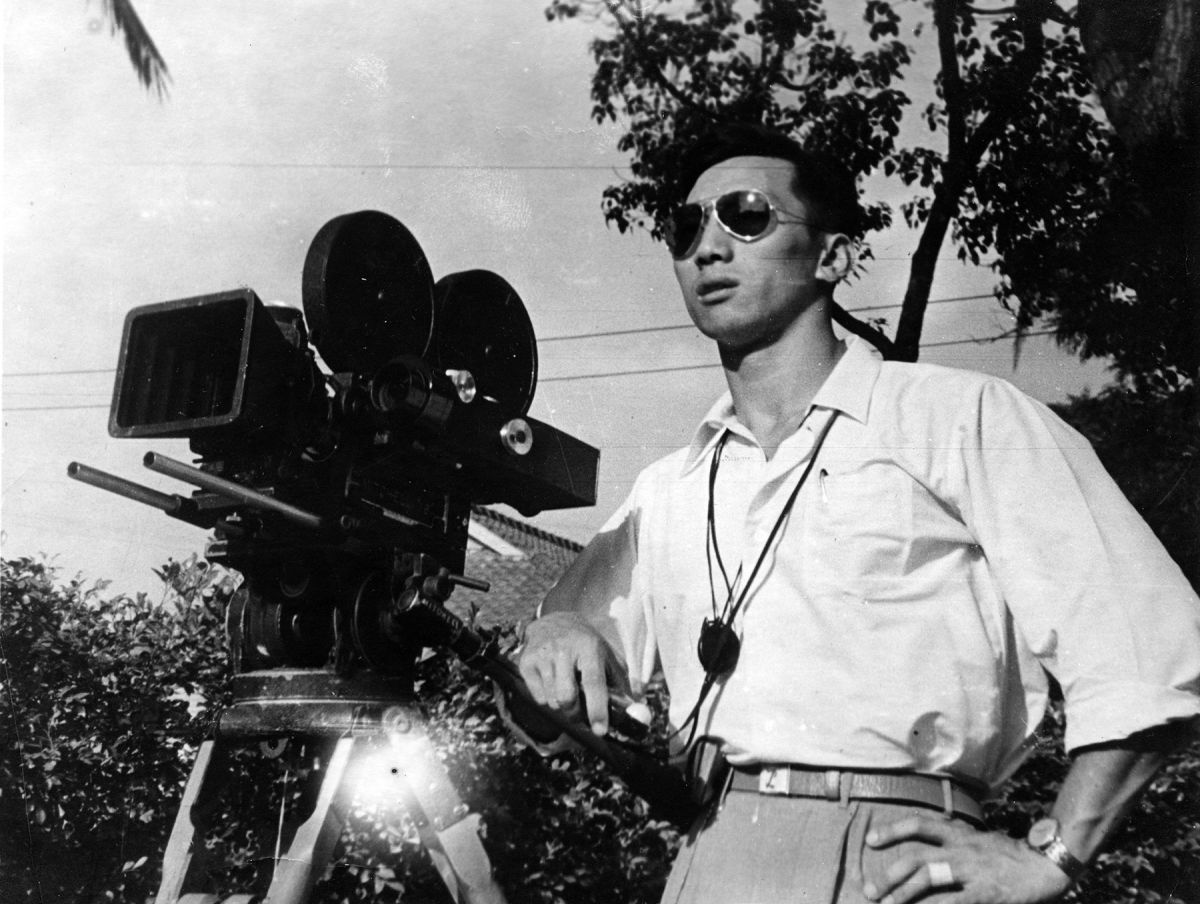
Without family in the United States, he needed three things to make his dream a reality: an advanced degree at an established U.S. university, five years of experience, and a special achievement in his field. When Industry: A Free China won an award at an Asian film festival, it fulfilled the final requirement, and Liu’s immigration was approved. He wrote to Farmer, who immediately offered him a job running USC’s motion-picture laboratory, and in 1966, Liu and his family moved to America.
“I’m very proud of being born Chinese, but I am deeply grateful to have been adopted by this great country. I love America — this is from my heart.”
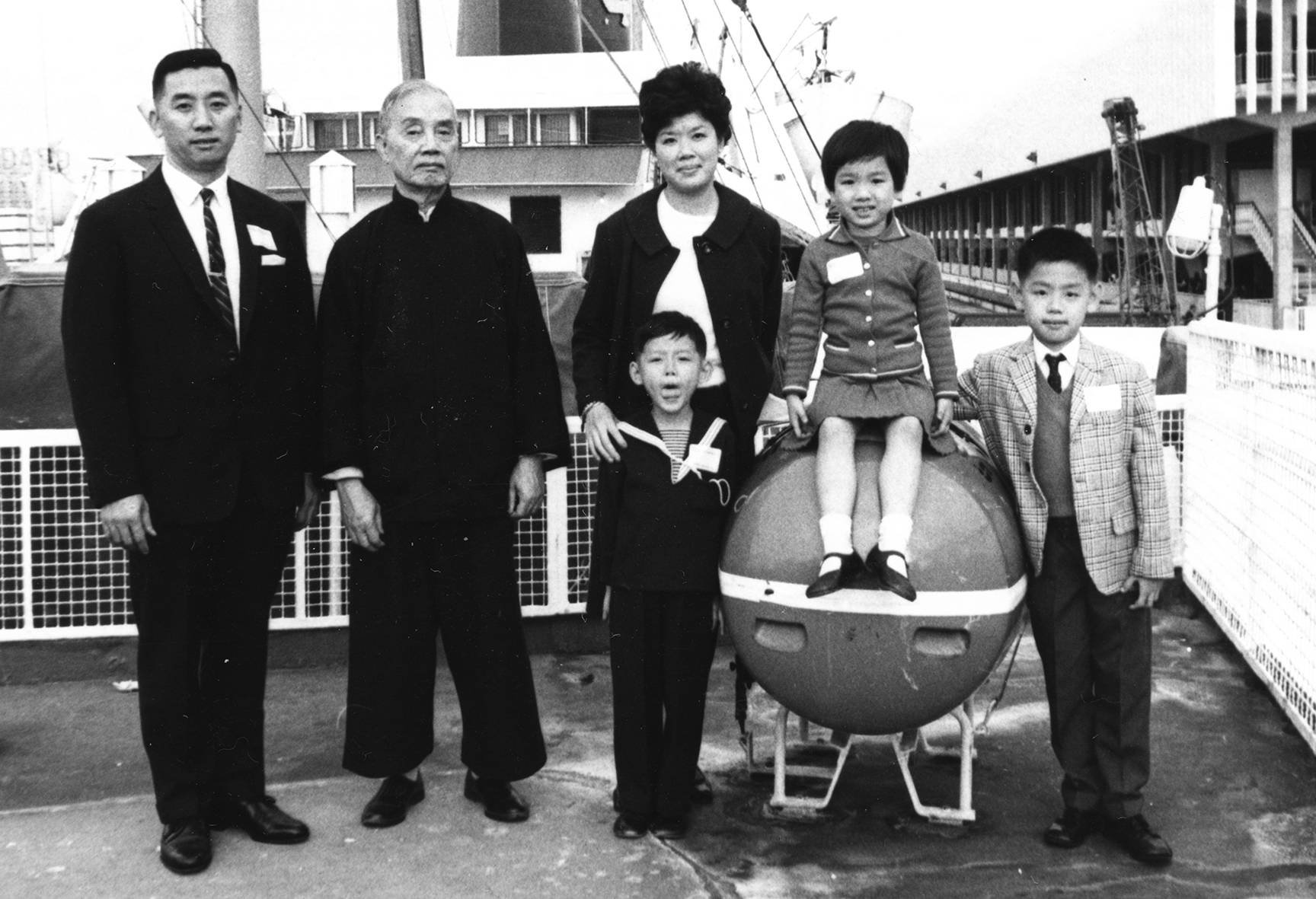
Almost three years later, Liu left his job at USC for a chance to work as a cinematographer. He spent almost four years as the principal cinematographer at the UCLA Media Center, where he shot documentaries and surgical films for various medical departments. His next step was to enter the camera union, and he tried entering the Minority Group Pool Program as a cinematographer but was turned down. He tried again, this time as a second camera assistant, and within two weeks, he had a job on Gunsmoke. “I have to thank John Flinn [ASC],” he said with a laugh. “The day he went out for his acting career, I was hired on Gunsmoke in his place. John didn’t know it, but he helped me get a foot in the door.”
Liu went on to work for cinematographer Edward Plante on the series Medical Center. After Gene Polito, ASC worked with Liu on Westworld (1973), he moved Liu up to first camera assistant on the series Adam’s Rib, and shortly thereafter, Richard Glouner, ASC promoted Liu to operator on the series Columbo. “I’m very grateful to both of those men,” said Liu.
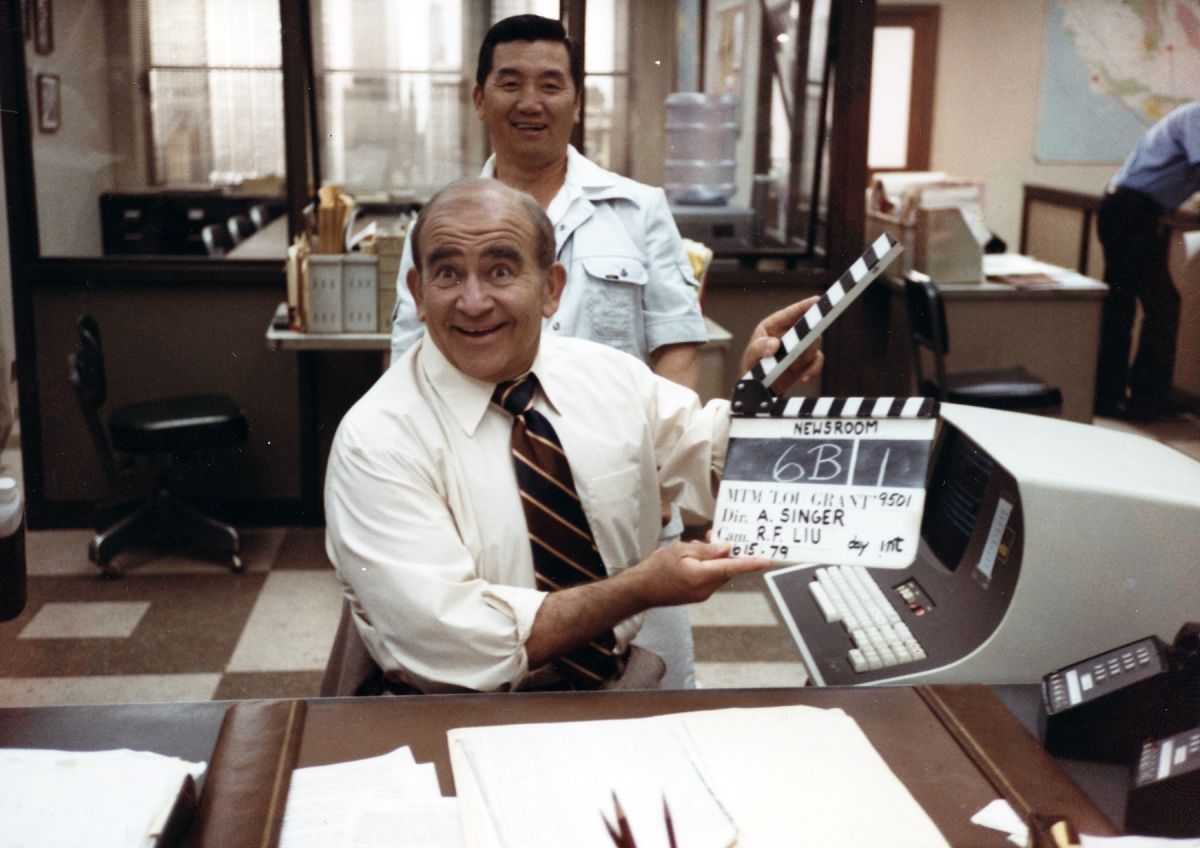
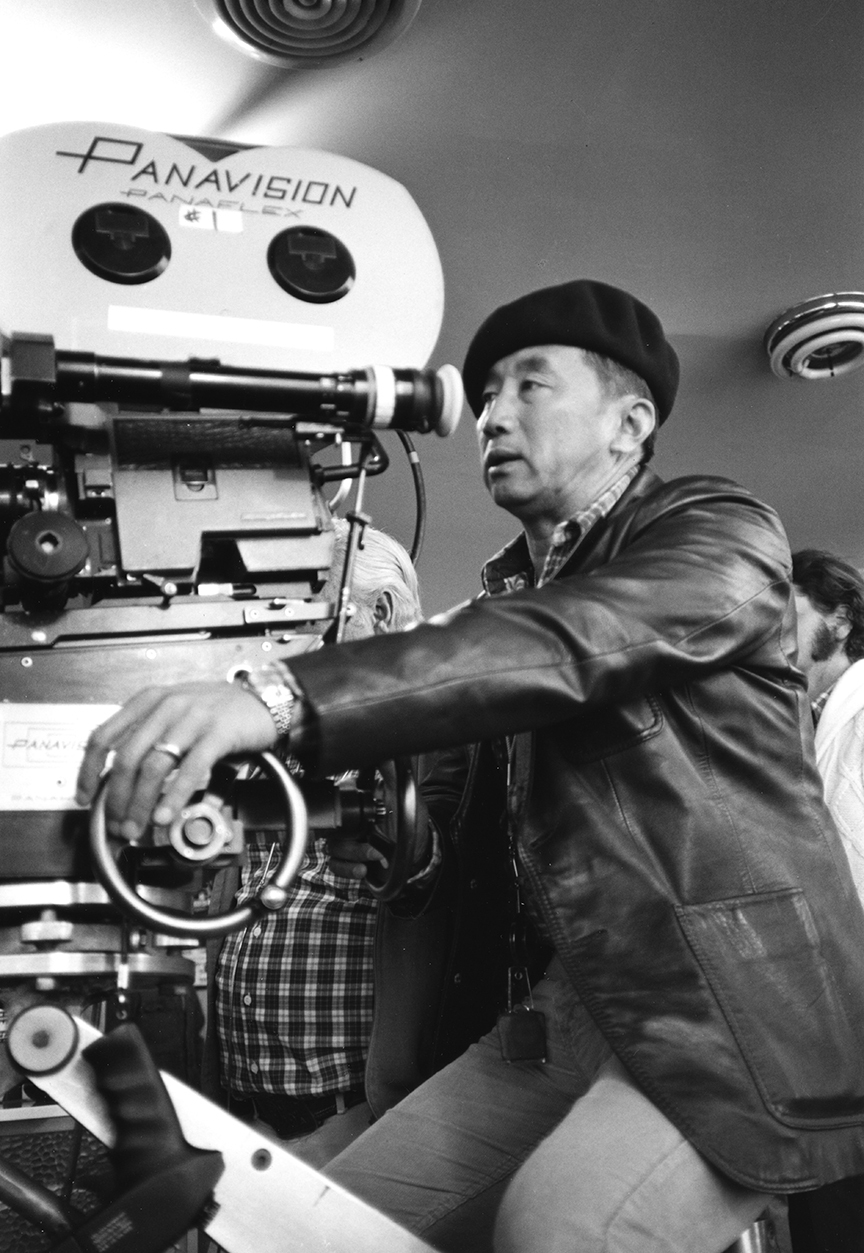
After operating for one season on Lou Grant, a single-camera series shot on 35mm film, Liu moved up to director of photography and went on to shoot three seasons of the show. When he took over, he suggested employing fluorescent lighting, which was rare at the time. “The main newsroom set was lit with a tremendous number of Photofloods above the ceiling,” he said. “They used a lot of electricity and lasted a very short time, and they made for a very hot set — very uncomfortable for the actors. Everyone wondered whether fluorescents would work, but I knew from experience that color temperature could be played with very easily as long as your light sources were uniform. I ordered warm white fluorescents, which mingled well with our tungsten sources onstage.
“I also gradually convinced the producer to shoot more on location and less onstage,” he continued. “When I started, we were doing about five days onstage and two days on location for each hour-long episode. I proved I could make the transition seamless, and by the end of the last season, we were working five days on location and two onstage. That was rare for a TV series at that time.”
Liu was invited to join the ASC on May 16, 1984, after he was recommended by Society members Glouner, Harry Wolf and Ted Voigtlander. When he attended his first dinner meeting at the ASC Clubhouse, “I looked around and realized I had worked with about one-third of the members present,” he recalled.
“This job was always fun. My mind is always open to figuring out a better way, and the things you learn stay with you.”
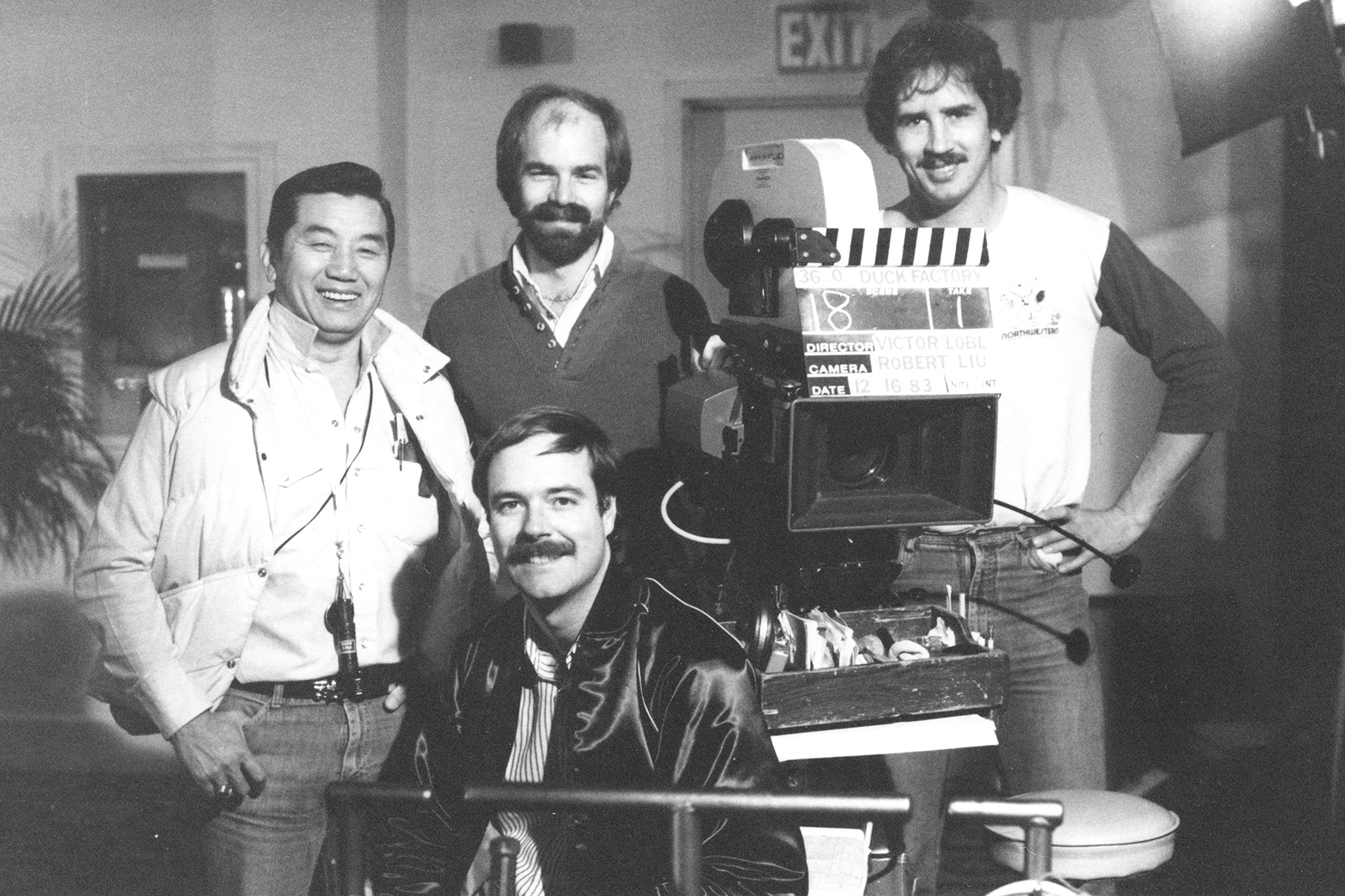
Liu compiled dozens of episodic-TV credits, including The Nanny, The Martin Short Show and Hardcastle & McCormick, and he earned two Emmy nominations over the course of his career, one for Lou Grant (in 1982), the other for Family Ties (in 1989). “This job was always fun,” he said. “My mind is always open to figuring out a better way, and the things you learn stay with you. I have no regrets about going from the bottom to the top twice; if you enjoy it, it doesn’t matter. Whatever job you’re assigned, you must do that job well.
“I’m very proud of being born Chinese, but I am deeply grateful to have been adopted by this great country. I love America — this is from my heart. And it’s such an honor to be in this prestigious society, the ASC. The members are not only loyal to each other, but also very thoughtful about future generations. I think it’s very important to care about those coming up. We should give them as much as possible.
Upon receiving the ASC Lifetime Achievement in Television Award, Liu said, “I never expected to be honored, and it was very fulfilling to receive such an acknowledgement from the people I worked with. My life has been one miracle after another, and this award was one more miracle to me.”
Liu peacefully passed at home, surrounded by his family. He is survived by his wife, Ivy, three children, six grandchildren and six great-grandchildren (with one more on the way).
Photos courtesy of Robert Liu, ASC; Lowell Peterson, ASC and Ken Zunder, ASC.
